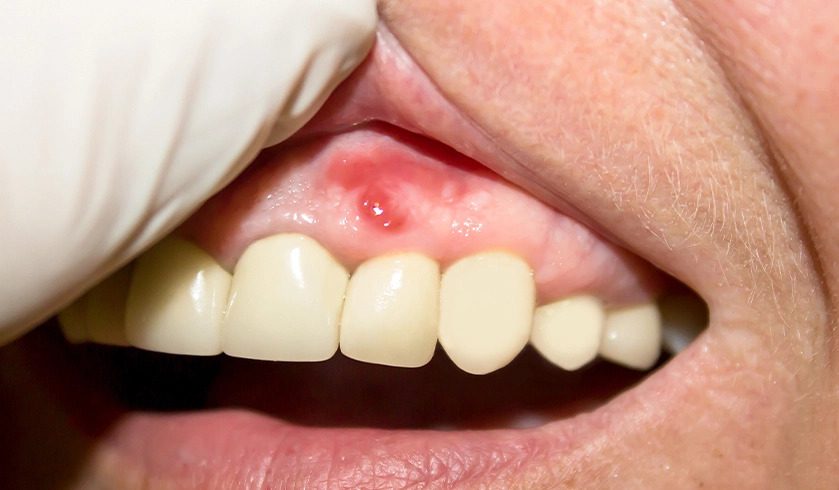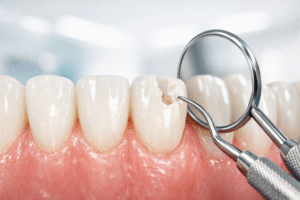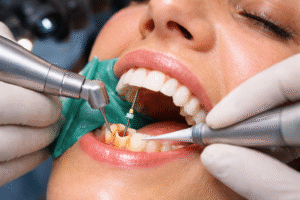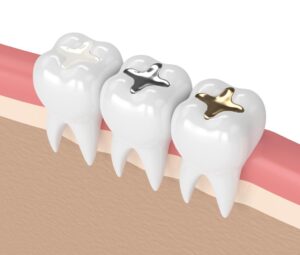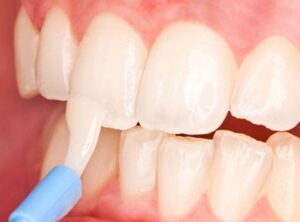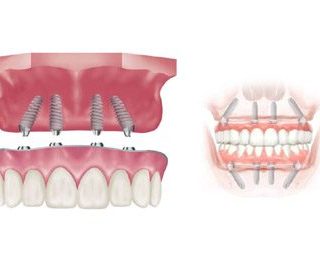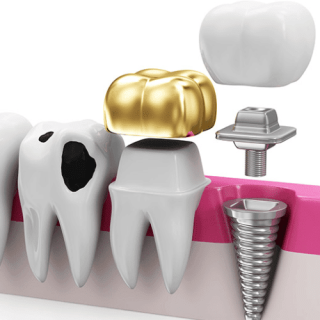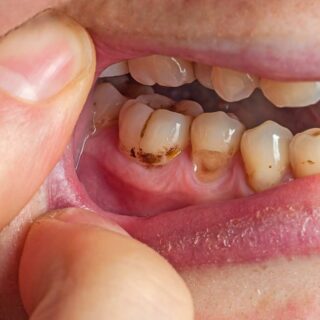Infection in the gums is very common in Egypt and affects a large portion of the population but usually go unnoticed until they cause more pronounced symptoms. The research shows almost 26% of adults in Egypt suffer from gum disease, and 3.2% suffered the most severe form. Only a small percentage, approximately 7%, have healthy gums and are plaque free.
These numbers are based on findings from a national study published in November 2021, titled “Periodontal diseases and potential risk factors in the Egyptian adult population.
This prevalence underscores the importance of understanding gum infections, why they develop, and the early warning signs that can help prevent them from progressing to more advanced dental issues.
The 4 Stages of Gum Disease
- Gingivitis: The initial stage of gum disease. The gums appear red, swollen and may even bleed when brushing or flossing teeth. You will not notice any bone loss in this stage and the treatment is highly effective.
- Mild Periodontitis:The untreated bacteria begin to break down the ligaments, soft tissue, and bone that support your teeth. It is usually also accompanied by bad breath, pus, and sometimes pain.
- Moderate Periodontitis: Bacteria have now caused degradation of your ligaments, soft tissues, and the supporting bone. Symptoms may include bad breath, pus, and sometimes pain.
- Advanced Periodontitis: In the late stages of periodontal disease, there is significant bone loss. Your teeth may loosen and eventually fall out.
The study on periodontal diseases found that

These data are from the study “The Prevalence and Risk Factors of Periodontal Diseases in an Egyptian Population”. The study involved 314 patients at Cairo University’s Dental Hospital and highlighted the prevalence of periodontal diseases, as shown in the graph.
Visible symptoms of gum infection
Symptoms of periodontitis can include:
- Swollen, red, or purple gums
- Tender or bleeding gums (e.g., after brushing or flossing)
- Persistent bad breath
- Pus between teeth and gums
- Loose teeth or tooth loss
- Painful chewing
- Gums receding, making teeth appear longer
- New spaces between teeth
Symptoms indicating the presence of infection in the gums should be dealt with immediately in order to prevent any additional complications.
causes of gum bleeding
Since one of the leading symptoms of an infected gum is bleeding gum, an understanding of the leading causes of bleeding gums contributes to reducing the risk of developing theinfection.
Common causes include:
- Poor oral hygiene
- Smoking
- Vitamin deficiencies
- Hormonal changes
- Certain medications
- Conditions like diabetes
Understanding these causes will also help you determine whether the bleeding is due to an infection or another underlying issue.
Main Causes of Infection in the Gums
The main reason for gum infections is the buildup of dental plaque. This plaque has lots of different bacteria in it, which can then infect the gums. Poor oral hygiene allows plaque to build up in the mouth that can increase the risks of gum disease. Additionally, for some individuals, their genetics can play a role, influencing how the immune system responds to the bacteria in plaque, which increases their risk of developing an infection.
Other things that make the risk of infection higher
- Smoking or Tobacco Use
- Diabetes
- Autoimmune Diseases
- Hormonal Changes
- Stress
- Heart Disease
How to treat gums with infection?
Treatment of the infected gums as soon as possible will prevent complications. The main treatment procedures are
- Good Oral Hygiene: Consistent brushing and flossing can take care of initial stages like gingivitis.
- Professional Cleanings: A dentist will remove plaque and tartar buildup, which cannot be achieved by just using a toothbrush by itself.
- Deep Cleaning: In the case of periodontitis, the dentist may perform a deep cleaning of the gums, and pockets around the teeth to remove the bacteria and alleviate some of the inflammation.
- Abscess Treatment: If there are abscesses present, the dentist must clean these out to resolve the infection.
- Antibiotics: In persistent cases, oral antibiotics or direct injection of antibiotics may be prescribed.
- Surgery: In advanced cases, surgical procedures such as bone or tissue grafting might be needed to repair damage to the jaw or gums.
Complications of untreated gum infection
If gum disease isn’t treated, it can get worse and cause serious problems with your oral health, like losing your teeth. The infection can spread, which means other teeth nearby are in danger and might also be lost. Plus, if you don’t treat the infected gum, it can even spread to your jawbone or the tissues around it, leading to more damage.
Research proves that gum disease is associated with significant overall health problems, including heart disease, stroke and diabetes. The bacteria of the infection may also enter the bloodstream which can cause complications to other parts of the body.
Tips to avoid bleeding gums causes
Some major recommendations to avoid bleeding gums:
- Brush your teeth day and night or sometimes after some meals that make food particles stuck in your teeth.
- Daily flossing is not optional, this is crucial to remove any plaque between the teeth.
- Rinse with an antibacterial mouthwash to kill germs.
- Stop smoking and refrain from using tobacco, which can cause gums to become sore.
- Visit your dentist for cleanings and checkups.
- Limit consuming sweet foods and drinks, which cause plaque to build up.
Keeping up with your regular dental routine and tackling any potential issues can help stop your gums from bleeding and keep them healthier overall.
When is it time to visit a dentist?
If you notice symptoms like red, swollen gums, bleeding upon brushing, or long-term bad breath, it could be a sign infection in the gums. These issues can result in severe effects, like tooth loss, and the erosion of the bone supporting your tooth if it is not managed. El-Shenawy Dental Clinics, with years of experience, are committed to diagnosing and treating oral infections. Their team of professional dentists offers personalized care to properly treat and prevent gum disease, in addition to treating a wide range of other dental problems. If you are experiencing one of these symptoms or any other dental issue, visiting El-Shenawy Dental Clinics will ensure that you receive the right treatment to protect your oral health.
Frequently Asked Question
- Can I prevent gums from getting infected?
Yes, you can often be prevented by maintaining good oral hygiene and adopting healthy lifestyle habits.
- Can I live with an infected gum?
It is not advisable. You may feel fine and not feel any immediate pain, but ignoring infections can allow the infection to continue to develop and obviously lead to more severe health complications. If you think you might have an infection, it’s really important to see a dentist for expert help. Getting a proper treatment plan is crucial for maintaining your mouth and overall health.



